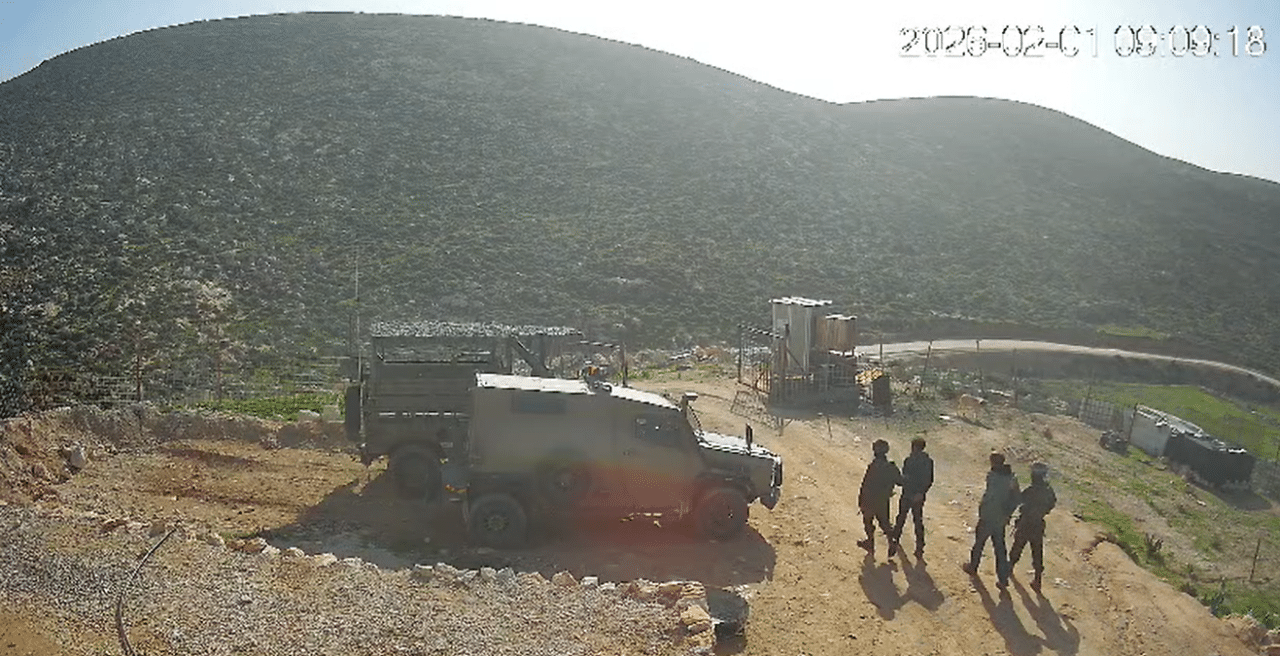Author: ISM Media
-
FOR IMMEDIATE RELEASE – Al-Mughayyir: Arrested French Citizens Challenging Deportation order
February 1 – Israeli pressure on the Abu Najeh family in al-Kalayel, on the outskirts of al-Mughayyir (East Ramallah), continues to escalate. Today, Israeli military forces carried out yet another raid, issuing a one-day closed military zone order that does not include the clause allowing residents to remain on their land. Despite this intimidation, the…
-
Jordan Valley: Settlers terrorise families in Hammamat Al Miteh and Hammamat Al Burj
17- 23 January Settlers with cows have been continuously terrorizing Palestinians in Hammamat at Maleh, Hammamat Al Miteh, and Hammamat Al Burj for a week. On the morning of Saturday the 17th at 8.30am a herd of cows belonging to a settler called Asael Kurnitz from the ‘Eresh Shametz Farm’ outpost and three settlers in…
-
Shot, Amputated, and Imprisoned: Palestinian Man Seeks to Rebuild Life After Being Maimed and Tortured by Israeli Forces
Ahmad is a 27-year-old Palestinian living in the occupied West Bank. On June 12, 2023, an Israeli soldier shot him in his village near Jenin, in the northern occupied West Bank. A bullet hit him in the leg as the military invaded the city; the soldiers left him bleeding and prevented the ambulance from arriving.…



